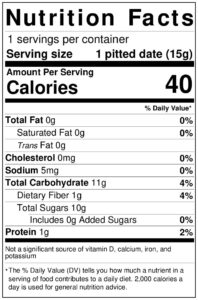What is the role of magnesium in diabetes?
What is the first thing that comes to your mind when you hear the word diabetes? Carbohydrate counting? Insulin? Metformin?
How about magnesium? It turns out that blood levels of magnesium has a special relationship with diabetes. Read this post to learn more about magnesium and its role with diabetes, and then answer the quiz that follows to see how much you have learned.
First, here is a brief overview of magnesium.
- Magnesium is one of the most abundant minerals in the body.
- Magnesium assists over 300 enzymes in the body that regulate many biochemical reactions in the body such as:
- protein production
- muscle and nerve function
- blood pressure regulation.
- Magnesium helps with making energy.
- Magnesium contributes to bone development and regulates potassium and calcium blood levels
Now that you have a overview of magnesium, lets understand the role of magnesium in diabetes.
First , it should be known that magnesium helps to regulate blood sugar by regulating insulin secretion from the pancreas. It also helps improve insulin functioning. Thus, low serum magnesium levels (hypomagnesemia) is associated with an increase in type 2 diabetes. This hypomagnesemia is associated with blood vessel complications of type 2 diabetes such as
- nephropathy (blood vessels supplying blood to the kidneys are damaged)
- retinopathy (blood vessels supplying blood to the eyes are damaged)
Low serum magnesium levels are also associated with diabetic peripheral neuropathy (DPN). What aspects of magnesium account for this?
- Low serum magnesium increases oxidative stress in the body. Oxidative stress can increase peripheral neuropathic symptoms.
- Low serum magnesium can increase inflammation in the body which in turn can increase peripheral neuropathic symptoms.
- Magnesium can increase inositol within the cells which supports proper nerve function.
Although all the factors that contribute to DPN are not fully known, oxidative stress, inflammation and proper inositol levels are important factors contributing to DPN and repleting serum levels of magnesium to normal levels may help address DPN.
In summary, maintaining normal serum magnesium levels help diabetics by:
- regulating blood sugar
- improving insulin secretion and functioning
- reducing blood vessel complications of diabetes: eye and kidney damage
- addressing factors that contribute to DPN: oxidative stress, inflammation, maintaining inositol levels
Although this post did not address type 1 DM, the conclusions drawn from this post could also be applied to type 1 diabetes.
Are you ready for the quiz?




